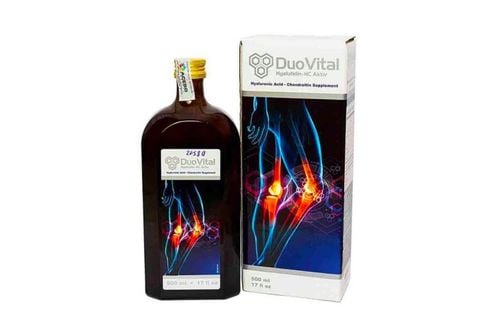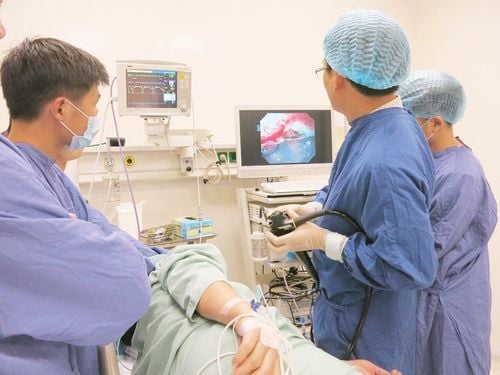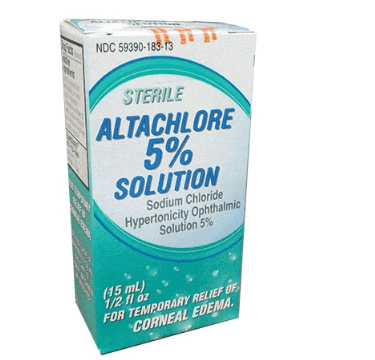This is an automatically translated article.
Posted by Master, Doctor Mai Vien Phuong - Department of Examination & Internal Medicine - Vinmec Central Park International General Hospital
Inflammatory bowel diseases (IBD), which are chronic inflammatory conditions of the intestines, include Crohn's disease (CD) and ulcerative colitis (UC). Long thought to be a disease of the young, an increasing number of IBD patients are over the age of 65. Compared with elderly patients without inflammatory bowel disease, the costs associated with the care of IBD patients. Elderly can be twice as high.
1. Overview of inflammatory bowel disease
Unique challenges exist in the diagnosis and treatment of Crohn's disease and ulcerative colitis in the elderly. Comorbidities and atypical clinical presentations may cast doubt on the diagnosis. The management of inflammatory bowel disease can be complicated by the combined functional and disease status of the patient even though the course of the disease may be milder when diagnosed at an advanced age. In addition, the lack of clinical efficacy trials and appropriate clinical endpoints (ie, subjective or objective) in elderly IBD patients adds to the complexity of treatment decisions.
One of the important considerations in the treatment of elderly patients is the development of serious infections. Many factors, which often coexist in the elderly, increase the likelihood of infection. These include active enteritis, multiple comorbidities, poor nutrition, immunoproliferative, hospitalization, and surgery. Immunosuppressive therapy, particularly a combination of biologics (eg, anti-TNF agents) and thiopurines (ie, azathioprine, methotrexate), is used to induce and maintain remission in humans. is associated with an increased risk of infection and decreased response to vaccination in the elderly.

2. Infection spectrum in inflammatory bowel disease
The spectrum of infection in IBD is broad and can vary from uncomplicated viral upper respiratory tract infections to gram-negative sepsis. Strategies to prevent infection through vaccination and universal precautions are key. Early recognition and management of risk factors are significant in minimizing the effects of serious infections. In a health care system that links reimbursement with quality measures, preventing infection in the elderly with inflammatory bowel disease is part of healthy medical practice and is important in managing cost management.
3. Medical treatment
For many geriatric inflammatory bowel disease clinicians, the potential side effects secondary to immunosuppression are of particular concern. In elderly patients, data on the safety of anti-TNF agents have been obtained primarily from the rheumatology literature, where results have been mixed. In rheumatoid arthritis, infliximab at a higher than standard dose (10 mg/kg) when combined with methotrexate more than tripled the risk of serious infection compared with those receiving methotrexate alone (P = 0.013). In patients with inflammatory bowel disease, a large retrospective study evaluating the use of infliximab and adalimumab found an increased rate of severe infections (11% vs 0.5%) compared with patients treated with other agents. other inflammatory bowel disease drugs. A retrospective case-control study from the Mayo Clinic found no increase in opportunistic infections with the combination of anti-TNF and thiopurine therapy.
4. Side effects of anti-TNF and thiopurine combination therapy
A community-based retrospective cohort study of patients taking anti-TNF therapy found that 44% of older patients compared with 32% of younger patients developed infection, but this was not significant. statistical. Another study examined claims data of >20,000 mats. Crohn's disease patients found rates of opportunistic infections and sepsis to be 6.18 and 1.75 in patients on combination anti-TNF and thiopurine, but this was not statistically significant.

5. Drug therapy and corticosteroids increase the risk of infection
Drug therapy and corticosteroids have always been associated with serious infections in inflammatory bowel disease. Narcotic drugs have been linked to an almost twofold increase in infections. Meanwhile, corticosteroids appear to increase the risk of infection in patients undergoing medical treatment, especially in two- or three-drug regimens that include thiopurines.6. Hospitalization and surgery
Hospitalization rates for ulcerative colitis and Crohn's disease are increasing and this is associated with significantly increased costs. Infections account for more than a quarter of IBD hospitalizations, and infection-associated inpatients are associated with excessive length of hospital stay, higher costs, and four-fold increased mortality. Elderly patients account for the highest proportion of hospitalizations related to inflammatory bowel disease. These hospitalizations are associated with increased costs and mortality in older IBD patients even when adjusting for comorbidities.
In the elderly, nosocomial infections cause a particularly high burden of disease. Older patients have longer hospital stays and are more likely to be discharged to skilled nursing facilities. Elderly inpatients are at higher risk for C. difficile diarrhea, nosocomial pneumonia, foley-related urinary tract infections, and intravenous catheter-related infections. These infections are associated with worse patient outcomes in patients with inflammatory bowel disease.
Although most hospitalized and outpatient IBD patients can be effectively treated with medical therapy, surgical intervention is often required. Using a National Inpatient Sample, older patients were less likely to undergo inactive surgery for ulcerative colitis but were as likely to undergo surgery related to Crohn's disease as younger patients. their age. The overall risk of complications between elderly and non-geriatric patients is similar.

7. Future-oriented strategy
Health care costs for chronic diseases such as inflammatory bowel disease are substantial and are expected to increase with an aging population. Recognizing the factors behind these costs and minimizing their impact is key. In elderly patients, the clinical and financial burden associated with adverse events such as infection is substantial. Since clinical symptoms in inflammatory bowel disease often do not correlate with active inflammation, an important strategy for balancing treatment risk and potential infectious complications is an objective assessment of activity. disease through laboratory, imaging and endoscopy. Ongoing objective assessment can help ensure that patients receive adequate treatment and reduce the risk of hospitalization and surgery. Due to the mild course of inflammatory bowel disease and concerns about immunosuppressive drug-related adverse events in the elderly, a "step-by-step" approach to treatment, using nonsuppressive drugs before initiating therapy, is recommended. method, often used to treat underlying inflammation. Advanced age is not a contraindication to the use of thiopurine and biologics, and in moderate to severe disease these agents may be indicated. In general, biologic or thiopurine monotherapy, rather than a combination of the two, is often preferred in elderly IBD patients.
Appropriate antibiotics should be used to avoid C. difficile and limited urinary catheterization and duration of mechanical ventilation to prevent hospital-acquired pneumonia
In addition to evaluating the patient for appropriate therapy, Other strategies exist to prevent infection in elderly IBD patients. In hospitalized patients, these include using appropriate antibiotics to avoid C. difficile and limiting urinary catheterization and duration of mechanical ventilation to prevent hospital-acquired pneumonia. For patients with inflammatory bowel disease, specifically restrict the use of corticosteroids to induce remission in inflammatory bowel disease, update vaccinations for influenza and pneumococcal pneumonia, and the use of aseptic techniques for central venous catheterization is not only required for effective patient care but is also part of the Centers for Medical Care and Medicaid Services (CMS) Physician Quality Reporting System (PQRS) ).

Assessment of nutritional status is an important aspect of care in inflammatory bowel disease
Malnutrition and physical activity are modifiable risk factors for IBD infection in the elderly. Assessment of nutritional status is an important aspect of care in inflammatory bowel disease. Nutritional care involves identifying deficiencies and appropriate supplementation. Multimodality can provide challenges in the management of inflammatory bowel disease, and in the elderly, drug matching can often identify unnecessary prescriptions. Part of an effective approach to malnutrition and multimodal treatment involves multidisciplinary collaboration between nutritionists, pharmacists, primary care physicians, and gastroenterologists.
Conclusion
There are limited data on inflammatory bowel disease in the elderly and the risk of infection in this age group. Further research is needed to examine the natural history of inflammatory bowel disease, the efficacy and complications of various medical and surgical therapies, the appropriate clinical goals of therapy, and infectious diseases. infections are most common in elderly patients. Until then, the guidelines and recommendations that direct the care of all adult IBD patients can be used in the elderly to prevent serious infections. The American College of Gastroenterology recommends testing for tuberculosis, hepatitis B, and, in endemic areas, for specific fungal infections, before starting biologics. In addition, Crohn's disease C recommends that patients over 65 years of age be vaccinated against influenza, pneumococcal pneumonia, and zoster. In the context of immunogenicity and multiple comorbidities, older adults may benefit from post-vaccination titers to determine if booster shots are needed.
Currently, Vinmec International General Hospital is a prestigious address trusted by many patients in performing diagnostic techniques for digestive diseases, inflammatory bowel disease, short bowel syndrome, diseases that cause chronic diarrhea , Crohn's disease, ectopic gastric mucosa in the esophagus, ...
Vinmec Hospital with modern facilities and equipment and a team of experienced specialists, always dedicated to medical examination and treatment , customers can rest assured with gastroscopy, esophagoscopy service at Vinmec International General Hospital.
Please dial HOTLINE for more information or register for an appointment HERE. Download MyVinmec app to make appointments faster and to manage your bookings easily.














